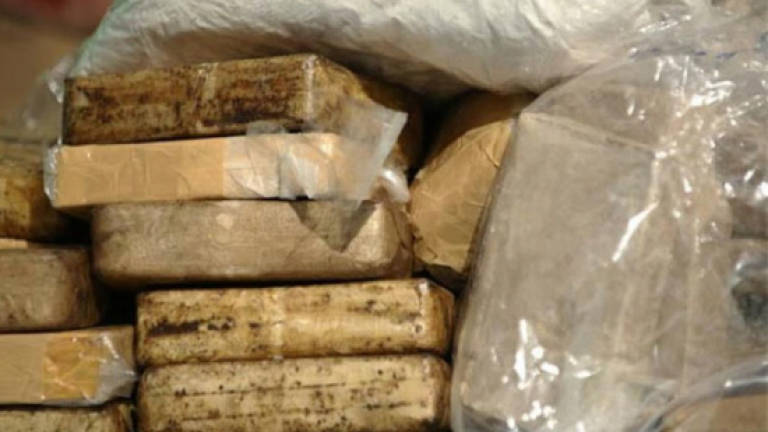Syndicates recruiting dual citizens for cross-border drug smuggling activities: Thai NSB

BANGKOK: A top anti-drug officer in the country hopes that Thailand and Malaysia could sit down together and resolve the longstanding issue involving citizens of both countries holding dual citizenship.
This was because, according to Thailand's Narcotics Suppression Bureau (NSB) head Lt Gen Sommai Kongvisaisuk, those holding dual citizenship had been recruited by drug syndicates to be couriers in the drug trade.
"Some of them whom we arrested (for trying to smuggle drugs into Malaysia) are holders of dual citizenship," he told Bernama in an interview recently, adding that the drug syndicates thought their dual-citizen couriers would have an easier passage into Malaysia if they carried a Malaysian identity card.
The Thai authorities, he said, had relayed to the Malaysian authorities about drug syndicates taking advantage of dual citizenship holders to camouflage their cross-border drug smuggling activities.
"We have sounded the alarm to the Malaysian authorities about this trend in drug smuggling activities," said Sommai.
The issue of dual citizenship among Thais and Malaysians have been high on the agenda for both governments and featured prominently during the official visits by Prime Minister Datuk Seri Najib Tun Razak and his deputy Datuk Seri Dr Ahmad Zahid Hamidi to Thailand last year.
Both countries agreed to resolve the issue with Thailand furnishing biometric records of those with dual citizenship for the purpose of verification by Malaysia.
National Registration Department director-general, Datuk Sulaiman Keling in an interview last year, said that Malaysia did not recognise dual citizenship among its citizens and anyone found to possess it would have to relinquish one.
Under Article 24(1) of the Federal Constitution, the federal government can renounce the Malaysian citizenship of an individual who has acquired the citizenship of any other country.
Sommai said the involvement of dual citizens in the cross-border drug trade could be attributed to a fugitive drug baron who had been blamed for much of the drug smuggling activities in southern Thailand.
"We believe that 'Usman Salamaeng' has dual citizenship," he said of the Narathiwat-born man who carried a two million Baht (RM256,000) bounty for his arrest and now thought to be in hiding in Laos.
Last week, Sommai said Malaysian police arrested a man in Kelantan, alleged to be Usman Salamaeng and ASEAN region's drug lord Xaysana Keopimpha's top lieutenant in Malaysia, who also has dual citizenship.
Thai authorities have made a request to their Malaysian counterpart to interrogate the man and do not discount the possibility of formally requesting to have the man extradited.
According to Sommai, efforts to identify people holding dual citizenship were not easy as they normally did not carry Thailand and Malaysian identification papers at the time of their arrest.
"We could not know all the (dual citizenship) cases and sometimes they did not disclose to us. We could also not re-check if they held dual citizenship as they used different names in their Thai and Malaysian identity cards.
"The suspects' true identities, whether they are dual citizens or not, could only come to light if both Thailand and Malaysia's identification cards were found on them when they were arrested," he said.
Sommai said, the worry now would be the possibility that those dual citizens could graduate from being a drug syndicate's members into committing other sinister crime related to the security situation in southern Thailand.
"The possibility is there," he said about the long-held suspicion of the Thai authorities about money from criminal activities being used to finance the conflict in southern Thailand.
Thailand has long accused those holding dual citizenship of being involved in the conflict in southern Thailand. — Bernama